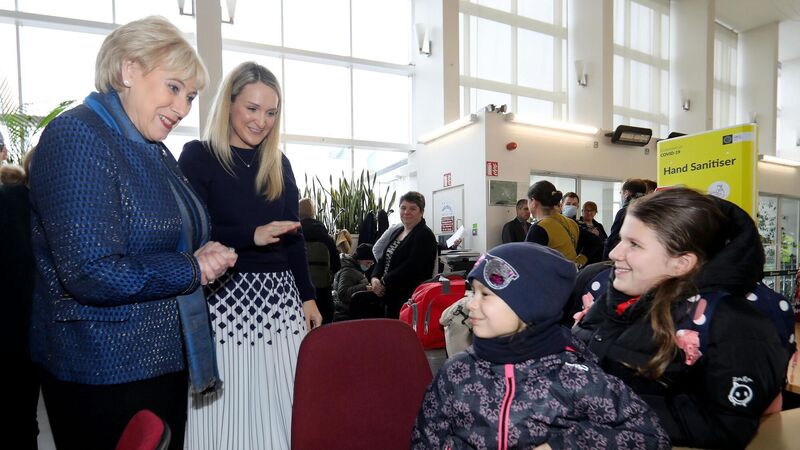Fergus Finlay: The going may get very tough — but we’ve been here before

Ministers Heather Humphreys and Helen McEntee at Dublin Airport where they met with people arriving from Ukraine. Picture: Maxwells
WHERE has our resilience gone? How come we seem to have suddenly lost the ability to pull together? Have we just used it all up, just got exhausted?
I’m asking because suddenly I can hardly bear to open a newspaper or turn on the radio or television these days, so loud is the whinging and moaning. Farmers, truck drivers, motorists of all sorts — either they or their spokespeople are at it morning noon and night. Everything is a failure in the eyes of opposition and so-called independent politicians — not just a failure, but a colossal one at that. The next time I hear one of those opposition people saying that the Government “just don’t get it”, I’ll throw something at the television.
Already a subscriber? Sign in
You have reached your article limit.
Subscribe to access all of the Irish Examiner.
Annual €130 €80
Best value
Monthly €12€6 / month
Introductory offers for new customers. Annual billed once for first year. Renews at €130. Monthly initial discount (first 3 months) billed monthly, then €12 a month. Ts&Cs apply.
CONNECT WITH US TODAY
Be the first to know the latest news and updates















